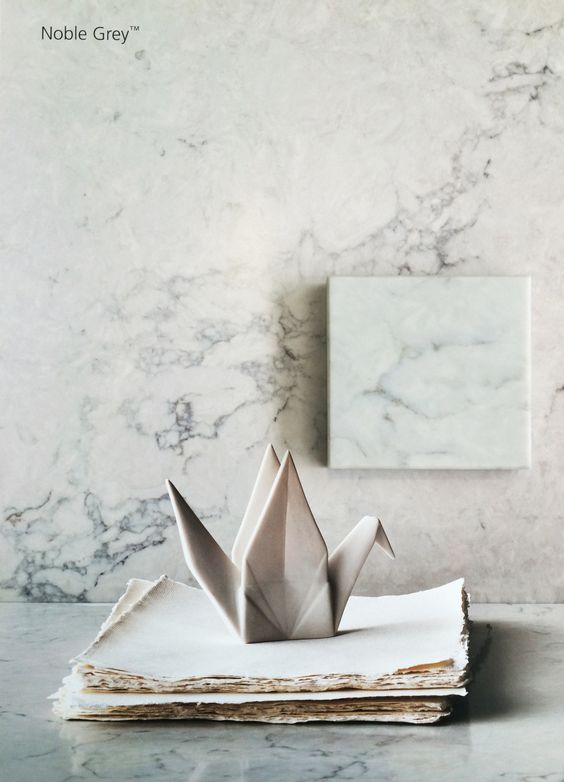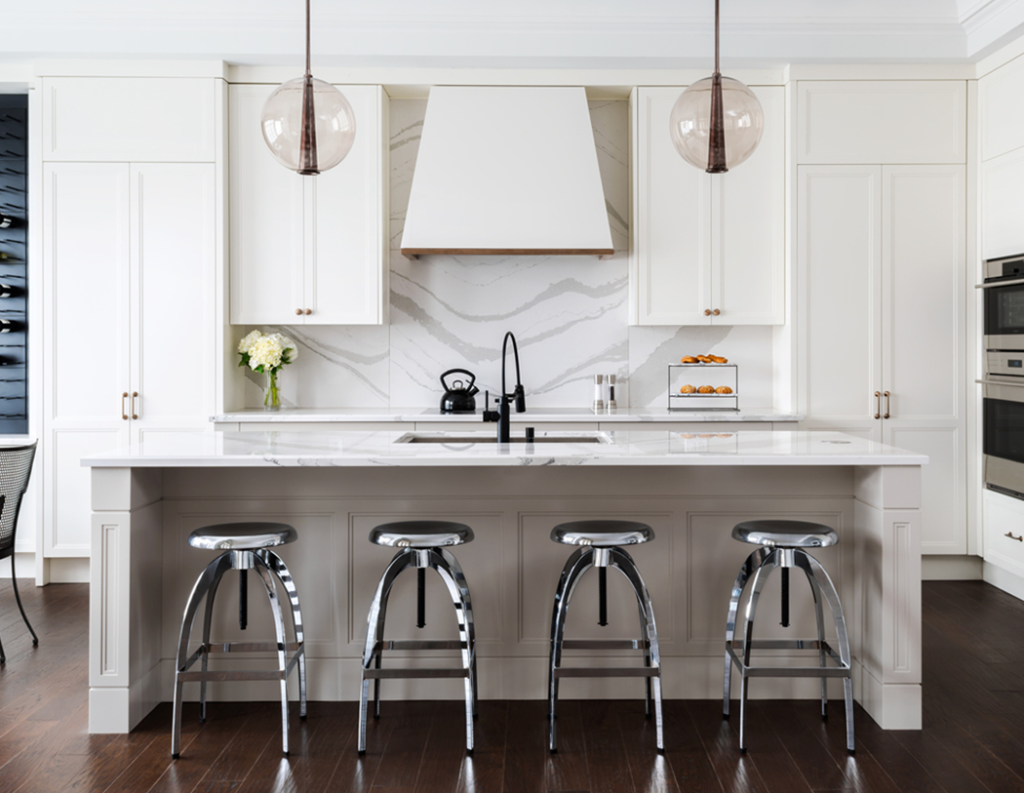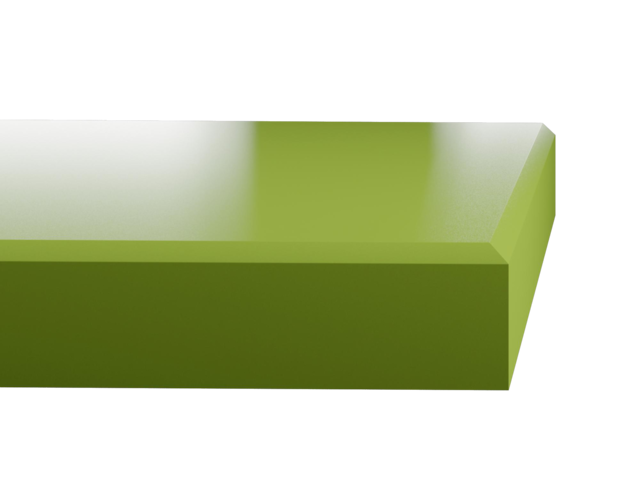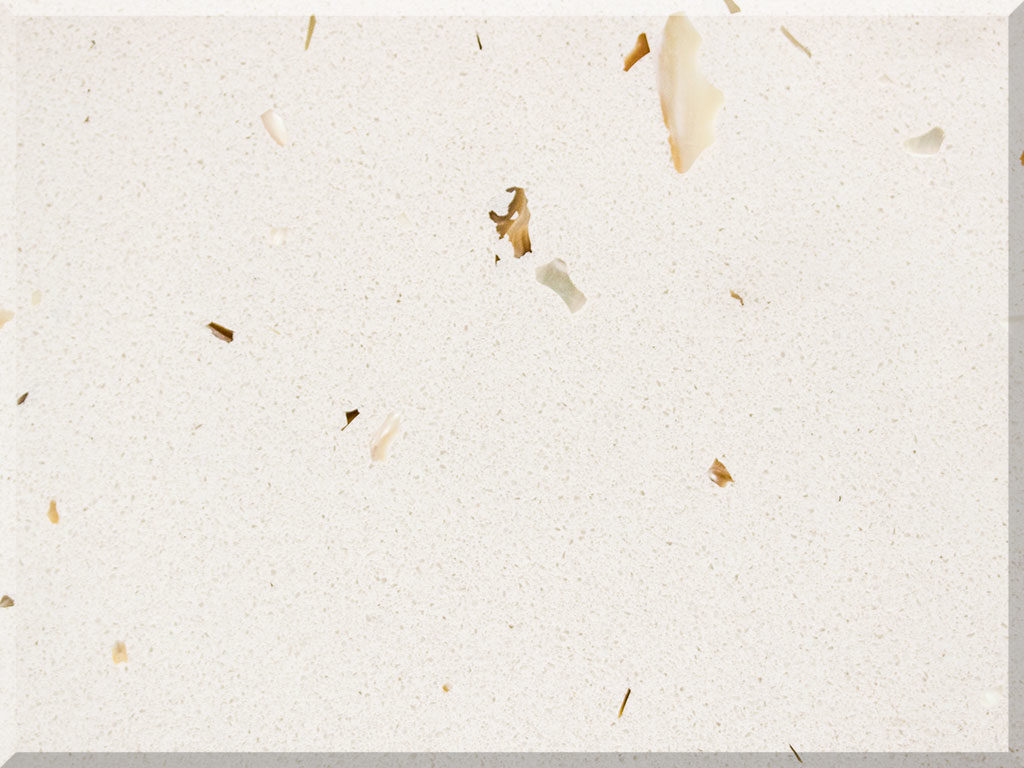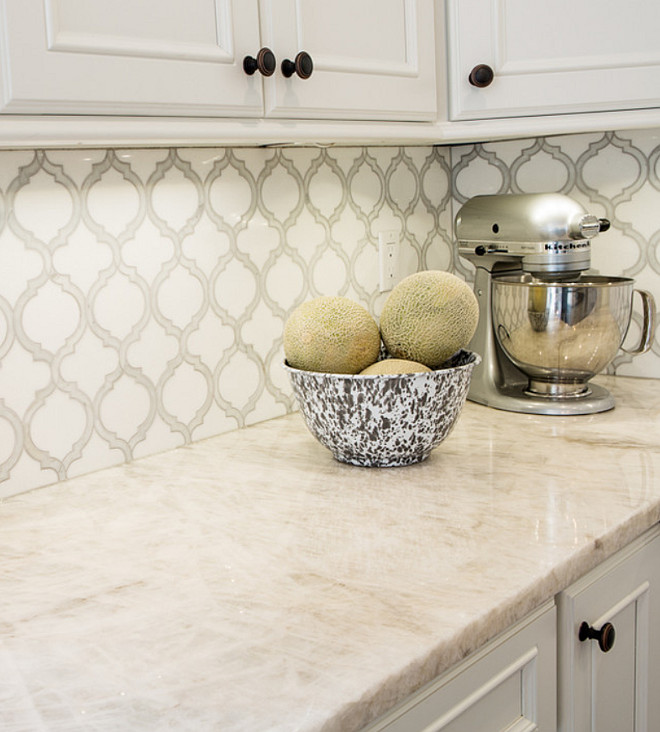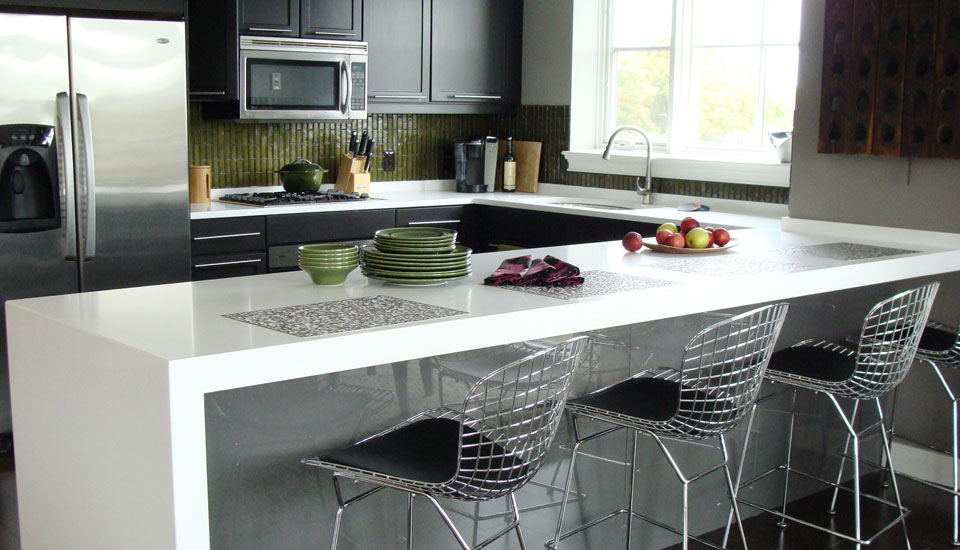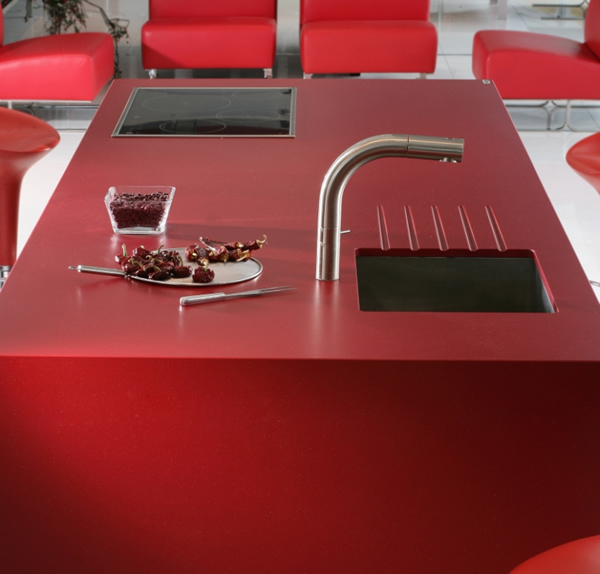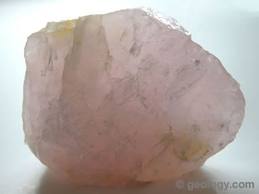One of the things I love about my job is that I get to shop. Let's face it, I live vicariously through my clients. A question that has been popping up a lot lately on my shopping excursions is, "what is the difference between a quartz vs. quartzite for countertops"?
They are definitely not the same thing and you shouldn't use the terms interchangeably. Here's the scoop:
Quartz is arguably the most popular counter top material today and there is good reason for it. It's composed of 93% quartz which is a mineral (see above). It's gorgeous and exactly the same stuff you see sometimes in jewelry. They ground this up and mix it with 7% resin to hold it all together. The result is the hardest, most chip resistant and non-porous counter top you can buy. This means it won't stain or etch. Now between you and me, I've had it and I've even put hot pots on it BUT you should know that it is not recommended. The resin bit has a melting point of about 300 degrees so it is possible that you could have a bad experience with the hot pot scenario.
Two more nice things are you never ever have to worry about sealing quartz and today it comes in just about any look you could want from solid to a fine granite type pattern to the popular swirling vein marble look. Some well-known brand names of quartz counter tops include Cambria, Caesarstone, Silestone by Cosentino, Pompeii and Zodiaq but there are more. Cambria is the only one manufactured in North America. Silestone by Cosentino comes from Spain and Caesarstone from Israel. Because quartz is non porous it is anti-bacterial by nature. The latest thing in quartz is leather finishes, as opposed to the usual polished look and BIG wild patterning such as in Cambria's Britannica.
If you want variety (in price, pattern and color), consistency and no maintenance quartz is a perfect fit.
Enough about quartz. So what the heck is quartZITE? Quartzite is actually pretty different from quartz. Where as quartz is a mineral, quartzite is actually sandstone that has been transformed through conditions of heat and pressure in the earth. It is completely natural, mined from quarries just like granite. It is also hard and durable and non-porous but not always to the same degree as quartz. Quartzite is a bit more heat resistant since there's no resin. Let's face it, it's breathtakingly beautiful. Each slab is totally unique featuring beautiful patterns. It can also be fabricated in a more matte, or leather, finish. If you like that natural uncontrollable variation this could be for you.
If you love the natural, uncontrollable uniqueness found in nature choose granite or quartzite.
Bear in mind, because quartzite is a natural material it can also vary in performance. My best advice if you are considering quartzite is to get a sample and do your own science projects on it. You know the drill, red wine, mustard, sharp knives, hot pots etc. All this goodness does not come without a price. Quartzite does need to be sealed about twice a year and speaking of price, most quartzite prices out higher than quartz.
One of the hallmarks of quartzite is its translucence, beautiful layers that you can almost see through! If you are in South Florida and would like to find the perfect counter top for your own kitchen, I look forward to hearing from you. Drop me a line at Gloria@ArtfulKitchens.net
Check out some of the other counter tops I LOVE on Pinterest !


